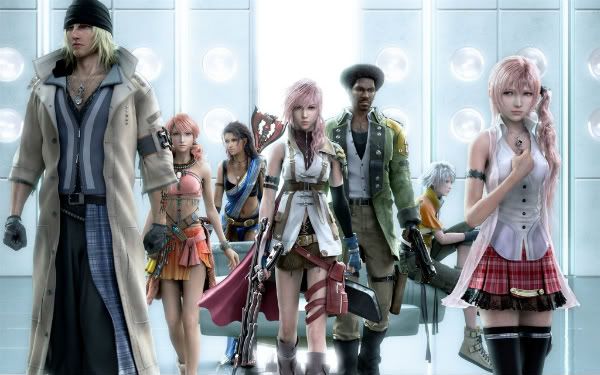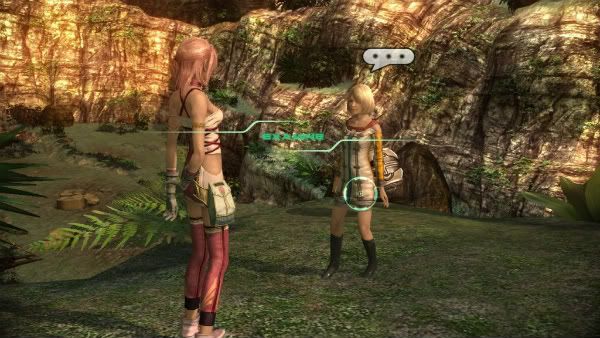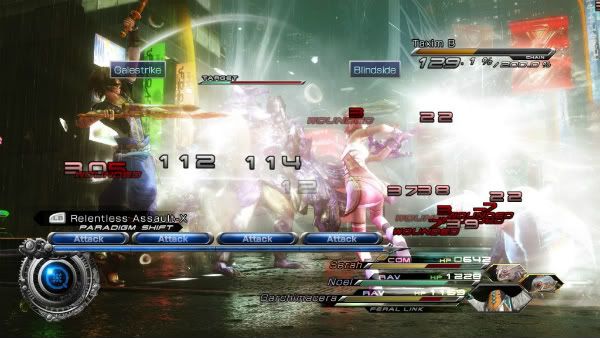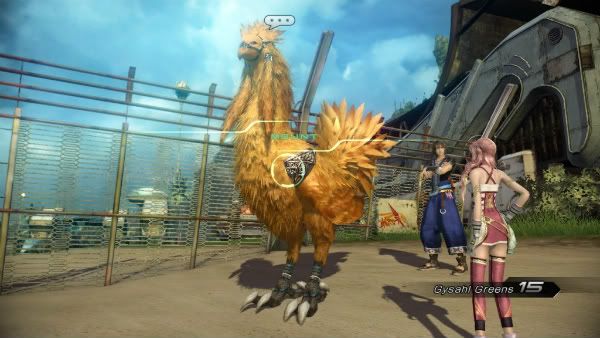This post has not been edited by the GamesBeat staff. Opinions by GamesBeat community writers do not necessarily reflect those of the staff.

A while back, I may have said that the name "Final Fantasy" needs to die, so to speak. And while I may still hold the small belief that Square Enix could benefit in some way if it dumped the title, I do understand the selling point behind it: "Final Fantasy" represents one of — if not the — biggest role-playing game series ever.
And that is why every game that bears the name will suffer an immense amount of scrutiny.
To be fair, I really enjoyed Final Fantasy 13. Although it was a departure from the usual formula, it still was a solid tale with excellent graphics, an action-packed battle system that I never grew tired of, and a satisfying end to the tale.
As a writer and a creator of stories (I write novels in my spare time), I understand things from a different point of view, especially when it comes to video games. This is why I don't generally hate games as much as others.
I understand the game's concept and why the developer wanted to take the route it did, and I can generally applaud it for the effort. Final Fantasy 13, which was met with such scrutiny as being "too linear" and "lacking in exploration," still was a big step in a broad direction for Square Enix.

Final Fantasy 13 represents an evolution within its own self. It is the very first single-player Final Fantasy on newer consoles, and with the new generation, the creators had to bring a bevy of new ideas to the now-fast-evolving gamer.
Western gamers these days demand fast action and plenty of options to explore and collect. Square tried to appeal to the Call of Duty-type player who wants linearity and epic campaigns, not realizing they would be alienating their core fanbase who craved the exploration that Final Fantasy 13-2 now has.
It's not hard to look out there and see what it is that gamers are buying these days; every year, the Call of Duty franchise breaks records, and other shooters are right up there in terms of exciting and thrilling western gamers. RPGs like Skyrim and World of Warcraft are delighting another core group of gamers, jaming loads of content, side quests, leveling trees, and epic storylines into their discs. With this advent, an evolutiuon happened, and unfortunately, Final Fantasy was missing during those times. The space between when Final Fantasy 12 came out and when 13 released was close to five years.
A lot has changed within those five years. It's amazing when you think about how fast this evolution process is; five years isn't long at all to some, but to video-game developers around the world, it represents almost an entire generation. That is why so many game companies seem to post losses and need to lay off workers every quarter; what was a solid business model for them last year will be ancient news next year (e.g., Guitar Hero, Need for Speed, uDraw, etc.)

Still an action packed game, but with plenty to explore now.
Final Fantasy, thankfully, didn't just lie down and accept defeat in the cruel and unwavering atmosphere that is video-game development. And we all know that Final Fantasy fans are some of the most critical and vocal out of any genre and franchise. For Final Fantasy 13-2, the creators looked at their previous release and paid attention to Internet forums and other feedback outlets, wondering truly what it was that they were looking for in the western market. Final Fantasy 13 was a big step; however, it was a big step in the wrong direction for the series.
They knew that video-game evolution started with the fans because ultimately, in this society we live in, a video game is only truly successful by how many people buy it. A game that could be rated 10 by all review outlets means nothing if no one buys it. In order for the name Final Fantasy to be a driving force in the RPG market, the makers sat down with gamers and found out what it was that they were looking for.
This is how you survive in an ever changing market.

Final Fantasy 13 represents a large jump in both the evolution of the series and in the RPG genre as a whole. Final Fantasy 13-2 subsequently represents another evolutionary jump from 13 because the developers took an active role to find out what it was that players were looking for.
It wasn't new types of gameplay or similarities to all the action games out there that western audiences are craving now. Fans wanted more of the old stuff — just revamped. Many reviewers already have been hailing 13-2 as the apology to 13, but as we all know, the process of evolution is never a smooth ride. There are bumps along the road, and one must be dilligent in riding the storm in order to reach a good end. And Final Fantasy 13-2 is a prime example of this.
As painful as it is, we need people like those rabid fans to initiate progress in our video-game evolution to where it can be both beneficial to the gamer as well as to the creators.
